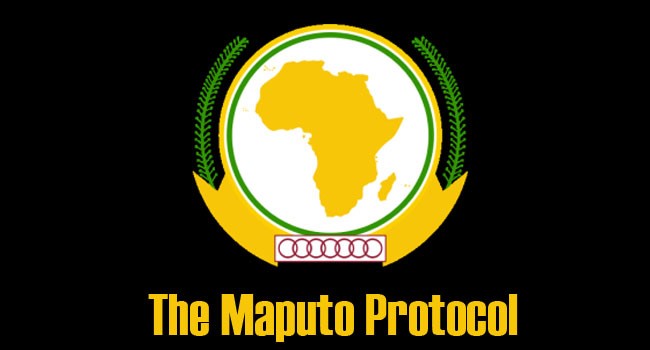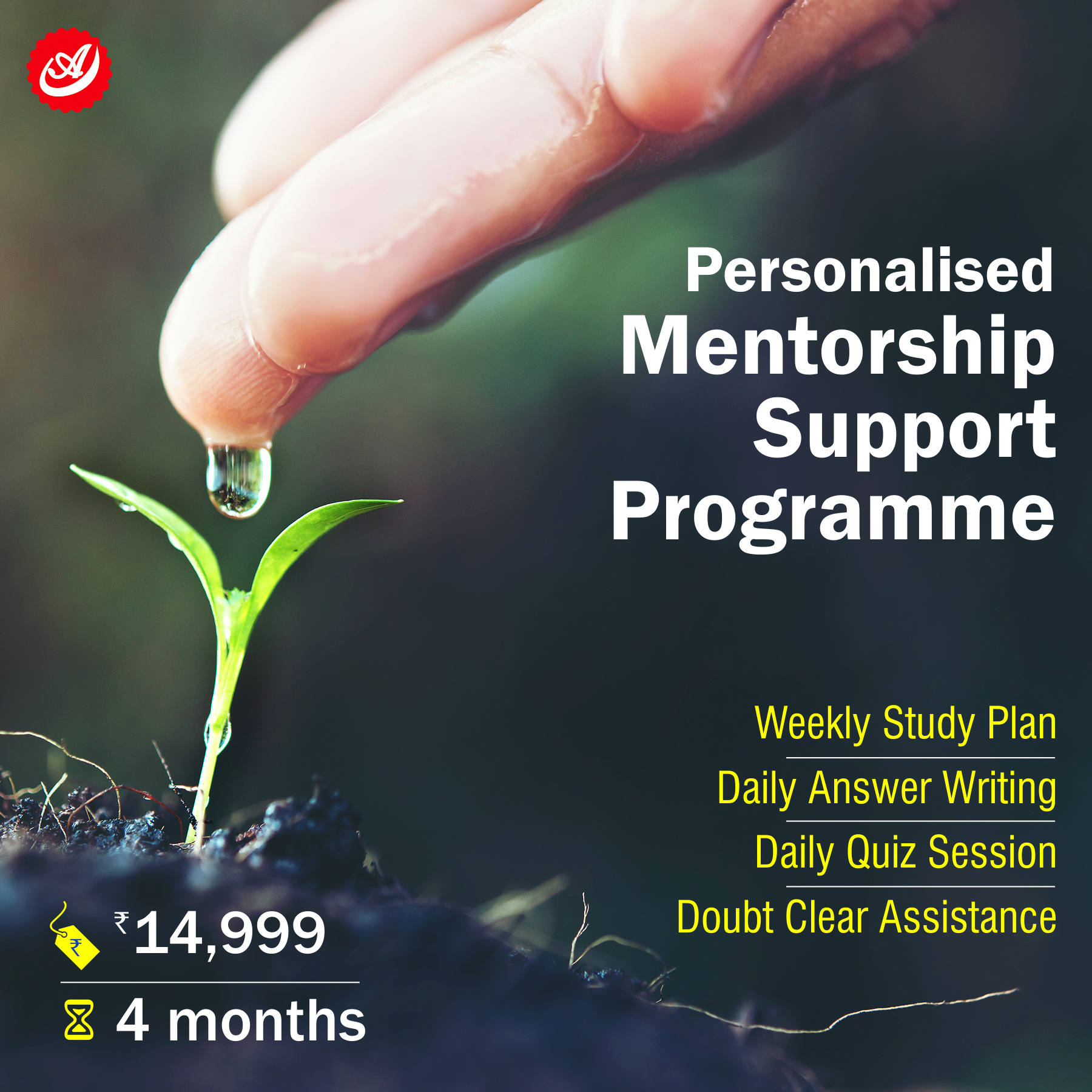Description

Disclaimer: Copyright infringement not intended.
Context
- There has been some progress on gender equality in African countries thanks to the Maputo Protocol, according to a new report titled as 20 Years of the Maputo Protocol: Where are we now?
The Report
- A group of civil society organizations, Solidarity for African Women’s Rights Coalition; Human rights organization Equality Now and advocacy platform Make Every Woman Count released the landmark report.
Maputo Protocol
About
- The Protocol to the African Charter on Human and Peoples' Rights on the Rights of Women in Africa, better known as the Maputo Protocol, is an international human rights instrument established by the African Union.
Adoption
- It was adopted by the African Union in Maputo, Mozambique, in 2003 in the form of a protocol to the African Charter on Human and Peoples' Rights (adopted in 1981, enacted in 1986). It went into effect in 2005.
Ratification
- Of the 55 member states, 44 have ratified or acceded to the Protocol on gender equality, becoming one of the most ratified instruments in the AU.
- Full domestication of the Protocol provisions into the national legislature has, in many cases, been slow or ineffective. Some African States are yet to ratify or accede to the Protocol.
Mandate
- It guarantees comprehensive rights to women including the right to take part in the political process, to social and political equality with men, improved autonomy in their reproductive health decisions, and an end to female genital mutilation.
The Maputo Protocol Advances African Women’s Rights
- The Protocol guarantees extensive rights to African women and girls and includes progressive provisions on:
- Harmful traditional practices, e.g. child marriage and female genital mutilation (FGM).
- Reproductive health and rights.
- Roles in political processes.
- Economic empowerment.
- Ending violence against women.

Findings of the Recent Report
Regarding Ratification
- The Protocol has a target of universal ratification in Africa by 2028. However, with just five years until the target year, there are still 12 countries that are yet to ratify this important legal instrument.
- If ratification and entry into force are considered, then the Maputo Protocol stands as the fastest human rights treaty to enter into force.
Efforts
- Significant efforts have been made over the past two decades to promote gender equality under all the provisions of the Maputo Protocol, which include advancing reproductive health and rights, facilitating equal access to and participation in political processes, promoting economic empowerment and ending violence against women.
Women’s Labour Force Participation Rate
- In two decades (2003-2022), Women’s Labour Force Participation Rate (LFPR) in most of African nations as compared to that of men remains low. In 24 countries, the share of women in labour force has decreased.
- This means that the women and girls in those countries do not have the same rights as the other women and girls on the continent.
Impact of the protocol
- Over two decades, the Maputo Protocol has played a crucial role in accelerating positive change across Africa. Many of the countries that have ratified the protocol have taken steps to align their national laws with its provisions. This has resulted in significant advancements in women's rights. From the criminalization of harmful practices like FGM and GBV to providing space for a galvanised community of women’s rights organizations to step into.
- For instance, in December 2019, the ECOWAS Court of Justice made a ruling that pregnant schoolgirls in Sierra Leone should not be banned from going to school. The court found that this ban was in breach of the Maputo Protocol. Following the court’s ruling, the government of Sierra Leone lifted the ban in March 2020.
- In Uganda, campaigners filed a case at the Constitutional Court of Uganda urging it to pronounce FGM illegal. The Court ruled that while the Constitution guarantees the right to culture, this culture should not force anyone to endure any form of torture. The Court found FGM to be in breach of rights set out in the Ugandan Constitution, as well as other international treaties such as the Maputo Protocol. The ruling led to FGM being banned by the Ugandan Government in 2010.
- Similarly, the Protocol also helps prevent inaction on protecting women’s rights. In 2020, Kenya’s High Court ruled that the Government of Kenya had failed to properly investigate and prosecute perpetrators of sexual and gender-based violence after the 2007 post-election crisis. The court found the government was in violation of several human rights instruments, including the Maputo Protocol. Four petitioners were offered compensation during the judgement – announced on 10 December, International Human Rights Day – for harm suffered and the violation of their rights.
Challenges and Gaps
Ineffective implementation
- 11 Member States of the AU are yet to ratify it. This hinders the effective implementation of the Protocol across the continent.
Deep-rooted patriarchy
- Deep-rooted patriarchal systems and harmful cultural norms continue to impede progress in many countries.
- If we consider FGM for instance, an estimated 55 million girls under the age of 15 in 28 African countries have experienced or are at risk of experiencing FGM. This is despite 22 of the 28 countries having already criminalized the practice.
- Additionally, GBV, inequalities in access to education and healthcare, and economic disparities persist.
Uneven Progress
- Progress is not evenly distributed across the board, pointed out the report. Women are faring better in some areas compared to others.
- For example, when 54 per cent of the AU states mandate equal remuneration for equal work or fair / just pay as per Article 13 of the Protocol, 46 per cent do not. These are: Botswana, Burkina Faso, Cabo Verde, Cameroon, Central African Republic and DR Congo.
Gaps in implementation
- Gaps in the implementation of some of the clauses of the protocol present another challenge. For example, a report by Lawyers Circle and Oxfam sought to assess how compliant Kenya’s legal framework was with the Maputo Protocol.
- While the report highlights significant advances in areas such as education, it also highlighted worker’s rights as an area of concern.
- The report argued that while in theory certain rights were protected by domestic and international laws, the reality of implementation often did not filter through.
- The report raised concerns over a lack of protection for informal workers, of which women in Kenya are the majority.

LFPR and Gender Equality
- In the past two decades (2003-2022), in nearly all countries, women’s labour force participation rate (LFPR) as compared to that of men has remained low. This would impact the continent’s goal of achieving gender equality by 2030 under the United Nations Mandated Sustainable Development Goal- 5.
- The trends showed that in 24 countries, the share of women in the labour force has decreased. In Guinea, the labour force participation of women has decreased by 9.6 points from 51 per cent in 2003 to 41 per cent in 2022, said the report based on World Bank data.
Impact of External Factors
- Women’s economic rights and opportunities and access to social welfare and protection are significantly affected by external factors such as conflict, COVID-19, the pandemic and climate change, said the report.
- The ripple effects of the COVID-19 pandemic have undone the progress towards ending child marriage. As a result of the economic impact and the disruption in education and services, up to 10 million more girls are at risk of becoming child brides by 2030.
- The pandemic had also strained and pressured the existing public health systems. At the same time, some of the disease outbreaks also impacted the already weakening health systems during this period. This has undermined the ability to deliver quality services, including reproductive and maternal health services, as required under Article 14 of the Protocol.
Mixed bag of Notable Progress
- There has been an improvement in women’s participation in the political and decision-making processes. In most of the AU states, women’s representation in Parliament has increased. For example, in Rwanda, women’s share in Chamber of Deputies or Lower House, increased to 61.3 per cent in April 2023 from 25.7 per cent in April 2003.
- So, over the past two decades, there has been a mixed bag of notable progress, missed opportunities and challenges that continue to persist.
Closing Remarks
- The Maputo Protocol is a crucial legal instrument in the fight for gender equality and the protection of the rights of women and girls.
- As we commemorate the 20th anniversary of the Maputo Protocol, it is crucial for all of us to come together and renew our commitment to advancing women's rights in Africa.
- Like elsewhere in the world, Africa is seeing a worrying trend where the rights of women and other marginalized groups are being rolled back. This trend risks jeopardizing the progress that has been made in the last 20 years.
- States and other democratic actors need to keep emphasizing the importance of the Maputo Protocol; to defend and promote it wherever they can.
- When women in sub-Saharan Africa have to wait another 102 years to achieve gender parity with men, this is the time to accelerate the promise for African women and girls.
|
Q. 2023 marks the 20th anniversary of the Maputo Protocol. Shed light on the stock of its significance and impact, and the work that still lies ahead.
|
https://www.downtoearth.org.in/news/world/maputo-protocol-contributed-towards-africa-s-progress-on-gender-equality-but-growth-uneven-report-90633
















